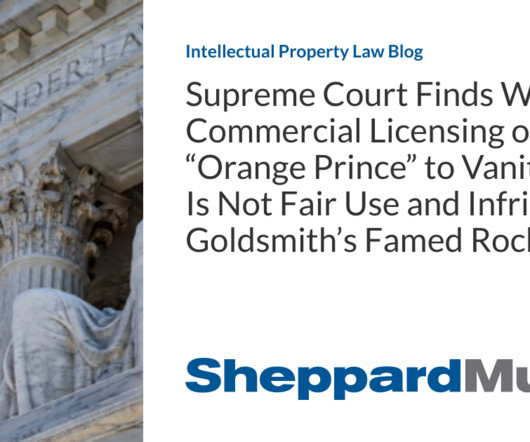3 Count: Warhol Battle
Plagiarism Today
OCTOBER 13, 2022
In 1984, Lynn licensed one of her photographs of the musician Prince to be converted into a painting by Warhol for Vanity Fair magazine. However, after Prince died in 2016, it was revealed that Warhol actually made an additional 14 prints using the photograph. Lynn sued allegiging that those prints were a copyright infringement.













Let's personalize your content